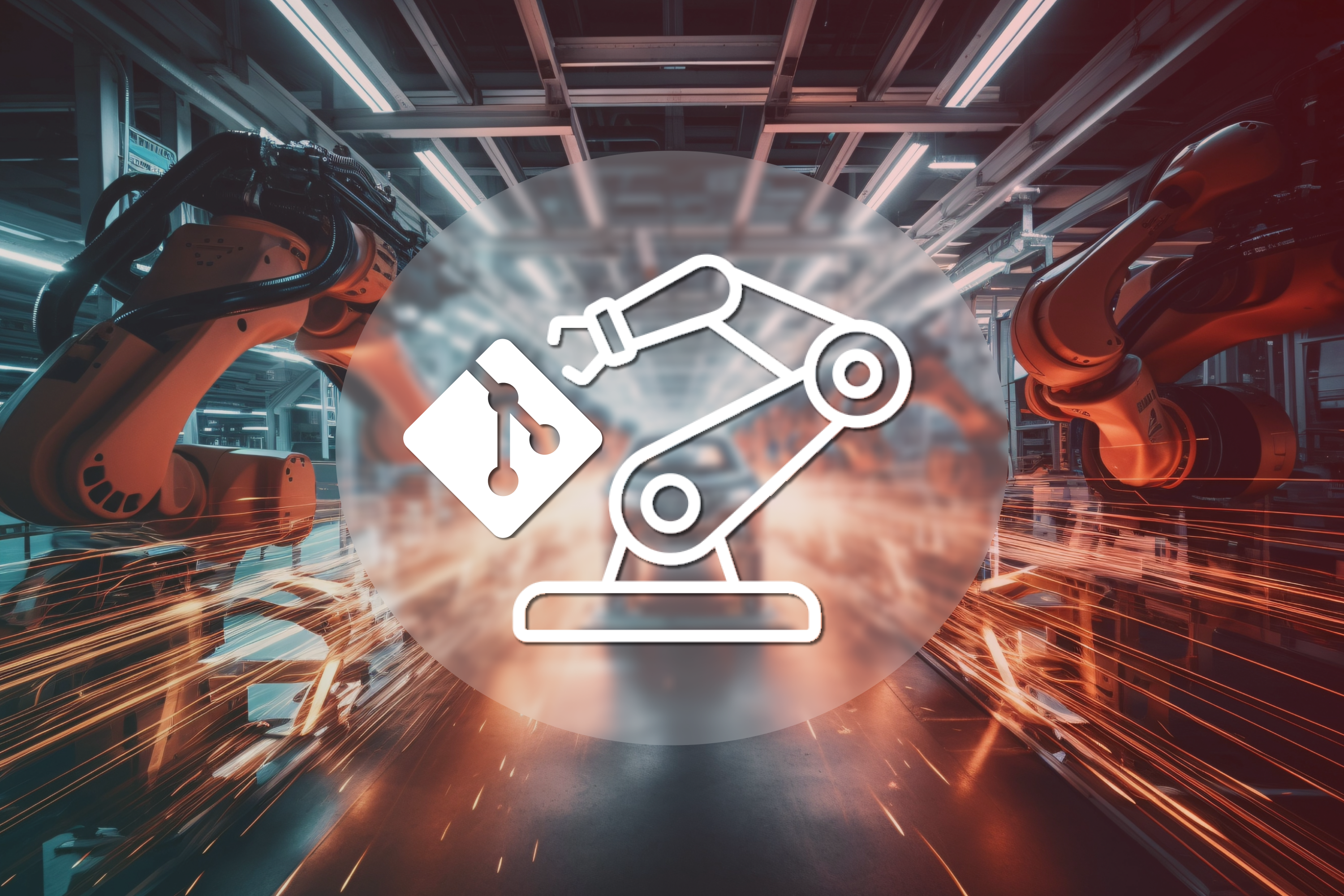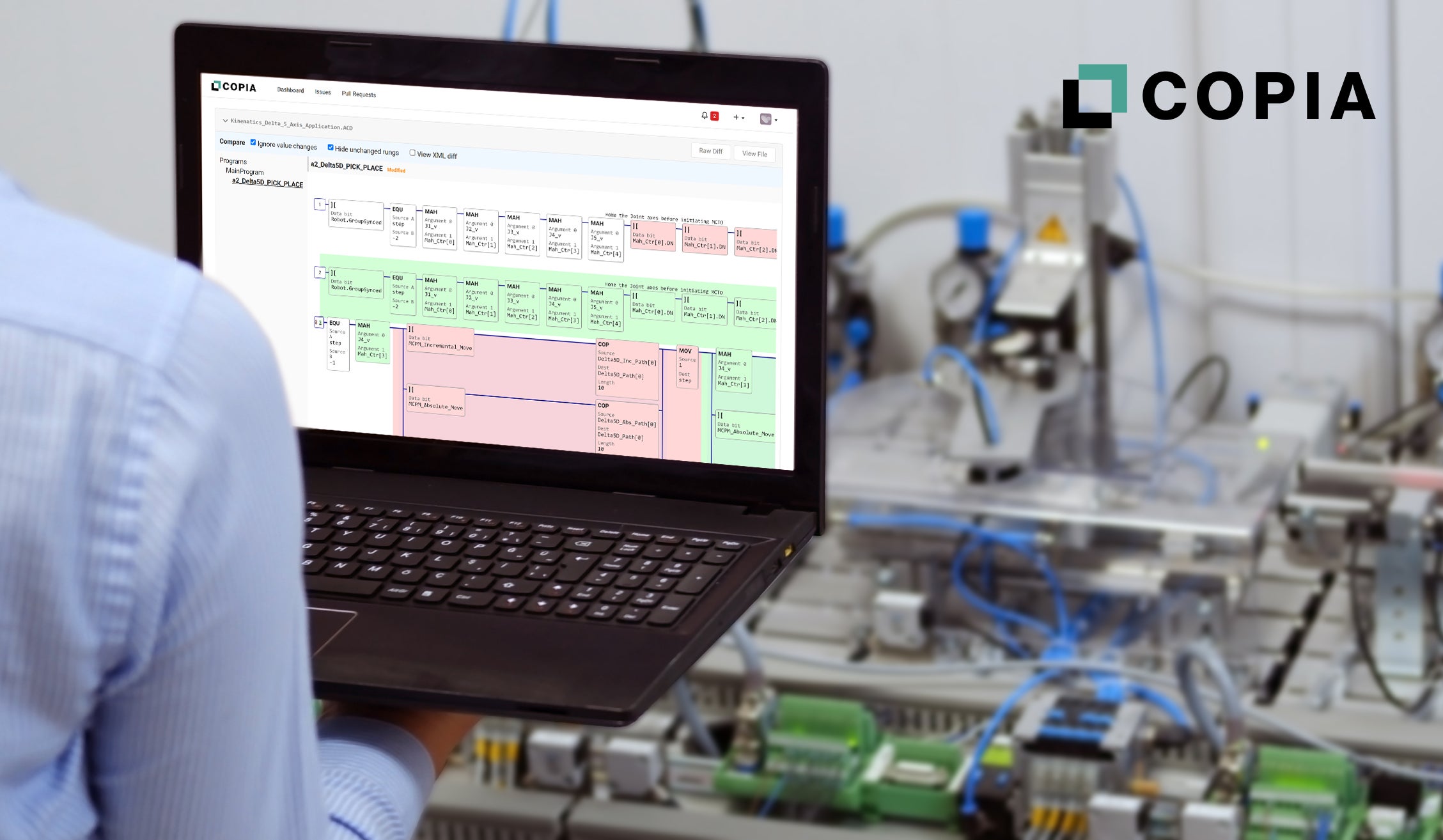Harnessing Industrial DevOps to minimise risk and maximise efficiency in industrial automation
THE ARTICLES ON THESE PAGES ARE PRODUCED BY BUSINESS REPORTER, WHICH TAKES SOLE RESPONSIBILITY FOR THE CONTENTS

Copia Automation is a Business Reporter client.
For the manufacturing sector, these are the best of times and the worst of times.
While overall the state of the industry trends upward, there are challenges – both new and old – on the horizon. From inflation and a general sense of economic uncertainty to a scarcity of skilled labour, lingering supply chain issues and the threat of cyber-attacks, manufacturers are struggling to stay the course. Applying a DevOps model to the industrial automation process is a sound way for manufacturers to help address these challenges and to ensure many productive years ahead. Industrial DevOps is the perfect marriage of industrial automation with modern software development practices.
Keeping the wheels in motion
The most critical task of any manufacturer is to establish and maintain consistent production. Operational outages can be triggered without notice from socio-political unrest, natural disasters or any of the more localised problems mentioned above. Whatever the cause, the result is the interruption of productivity and the potential for crippling financial losses.
In digitised plants, where manufacturing is automated for speed and efficiency, the effects of halting production can quickly wreak havoc on stock value and corporate image. A major car manufacturer suffered a shutdown at several of its assembly plants due to a glitch in one of its parts-ordering systems. The cause was attributed to a software update – just one example of how the technology that helps us can also impede us.
As the CEO of Copia Automation, I see first-hand how easily manufacturing operations are disrupted. I also see how risks can be mitigated by equipping teams with the right tools, providing visibility into their code and code changes, and giving them the control to spot issues and recover quickly. By applying pertinent strategies of the software development model to industrial automation processes, plant operations can be managed more efficiently, increasing stability and security and enabling faster recovery from system outages.
What is Industrial DevOps?
DevOps is a widely used set of practices that has revolutionised the way software development teams perform their jobs, enabling them to work more quickly and efficiently. Aspects of a DevOps environment include collaborative tools and standards for dividing up the labour, planning and executing code development, storing files and testing and deploying software. All of these practices keep development moving forwards, and allow for quick identification and correction of errors.
Industrial DevOps applies these concepts to the industrial automation process, providing powerful tools and a highly defined, collaborative environment for managing automated manufacturing systems. From design and programming of automated components and storage and management of source code, to testing, production and troubleshooting, Industrial DevOps provides a single source of truth for overseeing your industrial automation workflow. It enables the faster deployment and maintenance of robotic devices, programmable logic controllers (PLCs) and other equipment, and provides the ability to proactively anticipate and recover from crippling problems and outages.
What does Industrial DevOps look like?
An Industrial DevOps platform such as Copia provides a full-featured source control repository for your automation projects. For example, a factory may use PLCs to control how long cookies bake before heading to the cooling rack, or how thick a coat of paint is applied to a car door. Copia provides actionable visibility and precise control over PLC code development. When it comes time to deploy the newly programmed PLC, it can be swapped in, tested and further modified to exacting specifications within a single multi-vendor platform that offers an infallible source control/change management for PLCs and control devices.

Any future tweaks to the code are automatically updated in the source control repository, avoiding any errors caused by manual updates, with automatic alerts for unauthorised changes. In the contemporary industrial landscape, safeguarding control data through robust backup strategies is of paramount importance. While IT departments have long prioritised business data backups, the intricate manufacturing environment has been heavily reliant on workers physically connecting PCs to PLCs with backups not happening on a regular and consistent basis. Even with these manual processes to backup machines and devices, in addition to diverse automation programs, there is no way to know if code was changed, when, why or by whom, leading to vulnerabilities in the system.
Industrial DevOps eliminates these manual and tedious tasks and enables the visualisation of code that is running on the plant floor to provide visual comparisons to previous versions. Custom alerts can be sent when changes are detected, and automatic backups can be scheduled and run on demand. This superior visibility and control accelerates troubleshooting and maintenance to help prevent downtime and recover quickly when it occurs.
In short, Industrial DevOps facilitates faster, more efficient development and effective maintenance of the industrial automation processes and delivers benefits that extend well beyond the development stage, helping enterprises minimize operational risks and maximise efficiencies.
Occasionally, I meet manufacturers who are reluctant to transition to this new way of managing plant operations. The time and cost of implementing a new system or methodology can be daunting for many. And I understand that apprehension. But in an era when skilled labour is in short supply, when businesses are increasingly building new plants to bring their production back home and when tighter margins are demanding faster, more efficient production, the greater risk is inaction.
To learn more about Copia and how you can make your industrial automation processes more efficient, visit copia.io

Bookmark popover
Removed from bookmarks